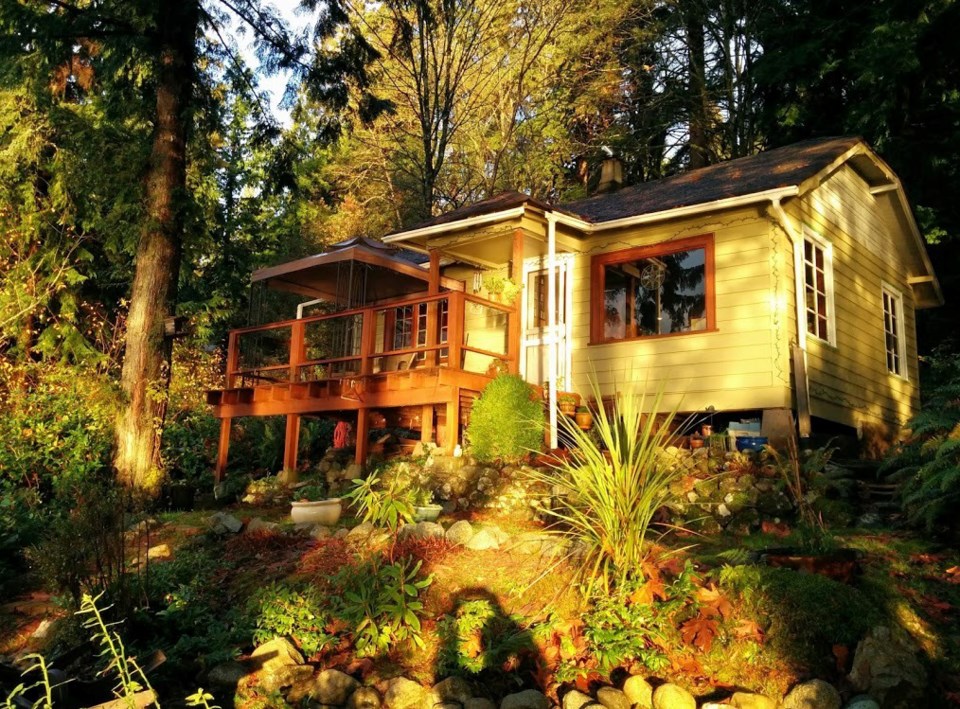Port Moody will work to enshrine the history of the Belcarra cottages in its heritage registry even as the city removes their heritage protection.
On Tuesday, Nov. 7, council unanimously approved third reading of a bylaw that would rescind the protection that had been granted in 2015 to the six of seven cottages that are in the southern part of təmtəmíxwtən/Belcarra Regional Park, within Port Moody's city boundaries.
The heritage designation was part of an effort to preserve the cottages, that had been built in the early 20th century as summer homes for family members of prominent New Westminster judge and MLA, William Norman Bole.
From the 1970s until 2021, the cottages had been occupied year-round by residents who leased them from Metro Vancouver but wished them to move out so it could expand the 1,100-acre park.
But earlier this year, a request from the Tsleil-Waututh First Nation, which now co-manages the park with Metro Vancouver, changed the conversation around the future of the cottages and the original Bole House.
In a statement, the First Nation said it wasn't consulted when the cottages were first constructed on its ancestral land, nor when Port Moody granted them heritage protection. It said it wanted to work with Metro Vancouver to restore the foreshore as well as turn Bole House into a multi-purpose facility "that will have cultural, artistic and educational components."
Tuesday, Coun. Amy Lubik said paving they way to make that happen by removing heritage protection from the cottages "is an immense reconciliation opportunity” that would “honour a new relationship we’re trying to build."
Coun. Kyla Knowles agreed, adding that allowing the Tsleil-Waututh to determine the future of its own land "shows how far we’ve come as a society, city, province and country."
But Coun. Diana Dilworth said respecting the First Nation while acknowledging the cottages' own place in Port Moody's history don't have to be mutually exclusive. She suggested the story of the cottages could be incorporated into some sort of sign or plaque as the site is redeveloped.
"There will always be a place to retell the story of the cottages as well as the Indigenous history of the land."
Dilworth's proposal was supported in a motion introduced by Mayor Meghan Lahti and backed by councillors to include an historical record of the cottages in the city’s historical register.
"I don't think we’re erasing history, we're adding to it," said Coun. Samantha Agtarap.
Port Moody's manager of policy planning said the cottages represent a cultural tradition of middle class families in the Lower Mainland more than 100 yeas ago.
"We're hoping for good consultation with the Tsleil-Waututh and Metro Vancouver to work together to recognize both histories," said Mary De Paoli in a presentation.
A statement from Metro Vancouver said it is working closely with the Tsleil-Waututh to plot a future for the part of the park where the cottages and Bole House are located, including the development of a new picnic area, as well as opportunities for First Nation knowledge-keepers, storytellers, artists, elders and youth to be part of the design process.
Currently the regional government’s board has approved a plan that would retain the cottages as static displays and renovate Bole House to heritage guidelines.
"All of the cabins are in poor condition and there would be an extensive cost to ensure their integrity (if they were to be opened to the public)," said the statement, adding plans could still change depending on further discussions with the First Nation.





